
by The Associated Press | Mar 5, 2024
The Biden administration announced a rule Tuesday to cap all credit card late fees, the latest effort in the White House push to end what it has called “junk fees” and a move that regulators say will save Americans up to $10 billion a year.

by The Associated Press | Jan 17, 2024
The cost to overdraw a bank account could drop to as little as $3 under a proposal announced by the White House, the latest effort by the Biden administration to combat fees it says pose an unnecessary burden on American consumers, particularly those living paycheck to paycheck.
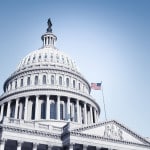
by The Associated Press | Dec 8, 2023
The heads of Wall Street’s biggest banks used an appearance on Capitol Hill on Wednesday to plead with senators to stop the Biden administration’s proposed changes to how banks are regulated.
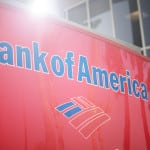
by Nika Cataldo | Nov 29, 2023
The Consumer Financial Protection Bureau has ordered Bank of America to pay a $12 million penalty for falsely reporting mortgage applicants’ data from 2016 to 2020.
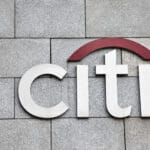
by The Associated Press | Nov 9, 2023
Citigroup intentionally discriminated against Armenian Americans when they applied for credit cards, the Consumer Financial Protection Bureau said Wednesday.

by The Associated Press | Oct 11, 2023
The proposal is being coupled with the CFPB announcing that it will block large banks from charging “junk fees” to provide basic customer services.
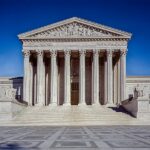
by The Associated Press | Oct 4, 2023
A conservative group’s lawsuit against the agency is being closely watched in parts of the banking industry to see whether it undermines a controversial rule that would require lenders to collect and report anonymized data about the small businesses they lend to.

by Nika Cataldo | Sep 8, 2023
The Consumer Financial Protection Bureau is warning that Apple and Google restrictions on banking and other payment apps on mobile devices could hurt the growth of digital banking and payments in the US.

by Nika Cataldo | Aug 20, 2023
A proposed bank regulation intended to highlight any existing racial discrimination in small business lending is being met with resistance by local and national banks who say their finances are under pressure.
by Lew Sichelman | Jul 30, 2023
According to a new report from the CFPB, all buyers, not just rookies, can save a significant amount of money if they shop for the best deal on their mortgage.

by The Associated Press | Jul 11, 2023
Bank of America must pay around $150 million to customers for doubling up on some fees, withholding reward bonuses and opening accounts without customer consent.

by James Sanna | Jun 8, 2023
Chatbots have become vital tools for banks and credit unions trying to offer customers relatively frictionless ways to answer simple questions. But, according to a new CFPB report, those same tools could be putting them at risk of violating federal consumer protection laws.

by The Associated Press | Jun 5, 2023
Customers of Venmo, PayPal and CashApp should not store their money with those apps for the long term because the funds might not be safe during a crisis, the Consumer Financial Protection Bureau warned Thursday.

by James Sanna | May 24, 2023
Citizens Bank has agreed to pay federal consumer regulators $9 million to settle claims it didn’t protect credit card-holders during charge disputes and fraud claims.

by The Associated Press | Apr 6, 2023
Banks will need to start reporting the demographics and income of small business loan applicants under new rules published by the Consumer Financial Protection Bureau last week.

by Diane McLaughlin | Mar 9, 2023
Some banks that charged multiple nonsufficient funds fees on a single item plan to refund the fees to consumers, and most of these institutions supervised by the Consumer Financial Protection Bureau have decided to eliminate nonsufficient funds fees altogether, the CFPB said in a statement yesterday.
by Lew Sichelman | Feb 26, 2023
Uncle Sam’s chief financial watchdog agency has fired a warning shot across the bow of consumer-facing comparison sites and mobile apps that steer consumers to the lenders that pay the sites the most.
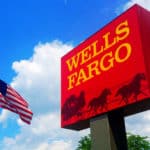
by The Associated Press | Dec 20, 2022
Consumer banking giant Wells Fargo agreed to pay $3.7 billion to settle a laundry list of charges that it harmed consumers by charging illegal fees and interest on auto loans and mortgages, as well as incorrectly applied overdraft fees against savings and checking accounts.
by Banker & Tradesman | Sep 25, 2022
Fresh attention from financial regulators towards non-sufficient funds fees for re-presented transactions is pushing banks to eliminate or dramatically cut these NSF charges.

by The Associated Press | Jul 28, 2022
Rohit Chopra said fines haven’t been enough of a deterrent and his agency could limit the ability of a bank or financial firm to conduct business if they violate the law.






















